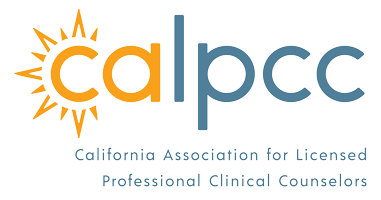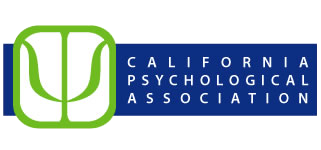There are many ways to become involved in the mental health field in California, including pursuing careers such as a marriage and family therapist (MFT), licensed clinical social worker (LCSW), psychologist, and counselor. Each of these careers involve the opportunity to work in a variety of settings and with many diverse clients. These mental health professions could include working in settings such as rehabilitation facilities, mental health clinics, schools, hospitals, and more. Some individuals working in mental health may even open their own practice and find clients independently for which they can provide mental health services.
The roles performed by MFTs, LCSWs, psychologists, and counselors may differ based on their training, skillset, and degree level, but they are all qualified to assess, diagnose, and treat mental health conditions at minimum. They also typically create treatment plans to help their clients meet goals to better their lives. Those who go into mental health careers should have excellent skills in communication and listening. They should be compassionate individuals with patience and empathy to be able to effectively treat their clients.
Working in Mental Health in California
There are many benefits to living in California as a therapist, LCSW, counselor, or psychologist. These careers are very rewarding, but they can also be a little mentally challenging, as you are frequently discussing difficult topics with your clients daily as well as potentially handling other stressful challenges that may be present in the mental health field. Luckily, California features an abundance of natural outdoor beauty where one can decompress and engage in self-care so as to avoid burnout and continue to provide excellent client care. There are many options for participating and enjoying outdoor activities, such as hiking, biking, skiing, swimming, and visiting beaches and lakes throughout the state. Those who want to live in the state have many options to call home, as California offers diverse cultures and areas, from the largest cities in the United States to small rural towns. Additionally, as the most populated city in the USA, mental health professionals are highly likely to continue to be in demand in California.
California Mental Health Degrees and Career Paths
To be qualified to assess, diagnose, and treat mental health conditions in California, you must earn a master’s or doctoral degree and go through the process of qualifying to become licensed. To be successful, the degree should come from a California-accredited mental health university. The main types of mental health career paths include:
- Marriage and Family Therapist (MFT)
- Licensed Professional Clinical Counselor
- Psychologist
- Licensed Clinical Social Worker
Each of these roles may seem somewhat similar but are all individually important and contribute to the mental well-being of the California population. Once the chosen degree program is completed, each requires that the candidate completes 3,000 hours of supervised experience to practice the skills that they have learned with real-life clients to prepare for clinical work in the future once they have earned their official license.
Marriage and Family Therapist (MFT)
A California MFT specializes in working with couples, families, individuals, and children to help them cope with and resolve interpersonal conflict. They can also diagnose psychological mental health conditions such as depression, anxiety, bipolar disorder, and many more. Their career involves listening to their clients while providing empathy and compassion through a family-centered perspective, documenting client notes, working with insurance providers, and more.
Licensed Professional Clinical Counselor (LPCC)
A California LPCC is a mental health specialist who helps their clients improve their mental health. According to the California Association for Licensed Professional Clinical Counselors (CALPCC), an LPCC applies counseling interventions and psychotherapeutic techniques to assist their clients with a number of conditions and goals. This may include mental health diagnoses, personal growth goals, crisis, adjustment to things like chronic illnesses or disabilities, emotional issues, and much more. They might also focus on helping a client change long term behavior, reduce stress, and make good decisions. California is one of six other states who add the word “clinical” to the title of their master’s level counseling specialists, as opposed to the states that title them just “Licensed Professional Counselors”. Individuals looking to become a counselor in the state of California will often pursue a Masters in Counseling degree.
Psychologist
A California psychologist is a mental health professional who has earned a doctoral (PhD or PsyD) degree. Because of this high level of education, they can treat more serious mental illnesses. They also contribute to academia by performing tests and experiments to find patterns of behavior to test theories or to further assist their patients. There are different types of psychologists that contribute to different fields, including counseling psychologists, rehabilitation psychologists, developmental psychologists, school counselors and psychologists, and more. Psychologist candidates can typically choose a concentration in their program to where they will take classes on the specific type of courses that they want to learn. Generally, individuals looking to pursue a career as a psychologist in California will have completed a bachelors, and then one of the following: a Masters in Psychology, a PhD program, or a PsyD. For those looking to practice, a Masters in Clinical Psychology is good option.
Licensed Clinical Social Worker (LCSW)
A California licensed clinical social worker (LCSW) helps clients by providing a number of services including counseling, evaluating needs, intervening to assist with said needs and in cases of crisis, and providing case management services. LCSWs differ from other mental health professionals because of these more involved job duties. The education that an LCSW receives involves learning how social and environmental factors play a part in their client’s experiences, and most LCSW’s have completed a Masters in Social Work program from an accredited school of social work. The evaluations that an LCSW is trained to perform are individual to each client/family, and as a result, so are the therapeutic services and resources provided. Before becoming a licensed clinical social worker, many individuals already have experience in social work. They might gain this experience through earning a bachelor’s degree in social work or another similar field.
Credentialing for Mental Health Careers in California
There are slightly different requirements to earn the appropriate credentials in the profession of your choice. As mentioned in the previous section, California requires that each mental health profession (MFT, LPCC, psychologist, and LCSW) complete 3,000 hours of supervised clinical practice after graduation to become prepared for the licensing exam. Even after a mental health professional has been working in the field, they must take steps to renew their license.
Marriage and Family Therapist (MFT)
To earn a MFT license in California after fulfilling the education and clinical practice requirements, one must take the Association of Marital and Family Therapy Regulatory Board Examination (AMFTRB). Once a therapist has been working independently, they must renew their license every two years and complete 36 continuing education units (CEUs) at each renewal period. New MFT graduates are required to complete at least 18 of these CEUs before they renew the license for the first time.
Licensed Professional Clinical Counselor (LPCC)
To earn a counseling license in California after fulfilling the education and clinical practice requirements, one must take the Association for Advanced Training in the Behavioral Sciences exam (AATBS). LPCCs must renew their license every two years and complete 36 hours of continuing education units (CEUs) for the renewal, which includes six hours of Law and Ethics courses.
Psychologist
To earn a psychology license in California after fulfilling the education and clinical practice requirements, one must take the Examination for Professional Practice in Psychology exam (EPPP). Psychologists must renew their license every two years and complete 36 hours of continuing education units (CEUs) each renewal period.
Licensed Clinical Social Worker (LCSW)
To earn a California clinical social work license after completing an MSW and clinical practice requirements, one must take the exam from the Association of Social Work Board (ASWB). LCSWs must renew their license every two years and complete 36 hours of continuing education units before the renewal date.
California Mental Health Associations
California Association of Marriage and Family Therapists

The CAMFT is an organization that represents the interests of LMFTs in California. This organization has over 34,000 members committed to the cause of advancing the profession of marriage and family therapy and maintaining the ethics and high standards of the practice. Marriage and family therapy is viewed as both an art and a science through this organization. They work for both practitioners and the public. The organization offers honors and award opportunities for members who have demonstrated significant accomplishments.
California Association for Licensed Professional Clinical Counselors

The CALPCC works on behalf of LPCCs in California by providing leadership through legislation advocacy, and promotional efforts. This organization promotes the importance of LPCCs in the state by demonstrating their strengths as leaders. Additionally, the CALPCC emphasizes the importance of ethical practice and high standards. There are also opportunities provided through the organization for LPCCs to network through the variety of workshops and conferences available.
California Psychological Association

The CPA is a non-profit founded in 1948 for psychologists and other individuals who provide psychological services. The CPA advocates for legislation that allows for the public to gain higher access to healthcare in California. This legislation also allows psychologists to practice at the highest possible level. The CPA also frequently interacts with media outlets to demonstrate the importance of psychology within the public and how it positively impacts the population.
National Association of Social Workers – California Chapter

The NASW works to advance social policies and enhance the professional growth of social workers. The organization creates and maintains standards for graduate-level clinical social workers across the United States, and there are chapters in each state, including California. Members receive continuing education and networking opportunities as well as tools and information to provide a high-quality practice.
Frequently Asked Questions about Mental Health Careers in California
How much money can I make in a mental health career in California?
- California MFT Median Salary: $59,320
- California LPCC Median Salary: $59,790
- California Psychologist Median Salary: $107,470
- California LCSW Median Salary: $58,450-$83,000
Is mental health a good career?
Going into a mental health career such as a psychologist, marriage and family therapist, counselor, or licensed clinical social worker can be very challenging and rewarding. These careers can be beneficial in the long run depending on the kind of person you are and the kinds of duties you would like to perform on a daily basis. Individuals going into these kinds of careers should be able to handle stressful situations and have empathy for others white still taking care of themselves. California mental health careers have some of the highest salaries in the United States, so if you want a reasonable salary, this career may be for you. Additionally, there are many different types of organizations and specializations one can choose, so these careers have many options.
How long does it take to enter a clinical mental health career?
Starting a career such as a psychologist, marriage and family therapist, counselor, or licensed clinical social worker takes about 8-12 years. This is because some of these careers (MFT, LPCC, and LCSW) require a master’s degree. For example, if a student is starting with no education, they will have to first earn a bachelor’s degree (four years), and then they will complete the master’s program. The process can take about 5-7 years depending on if a student is taking a part-time, standard, or accelerated program. A psychology career can take 10-12 years to begin. All of these time estimates also include the amount of time a student will need to complete their 3,000 required clinical practice hours after graduation.

